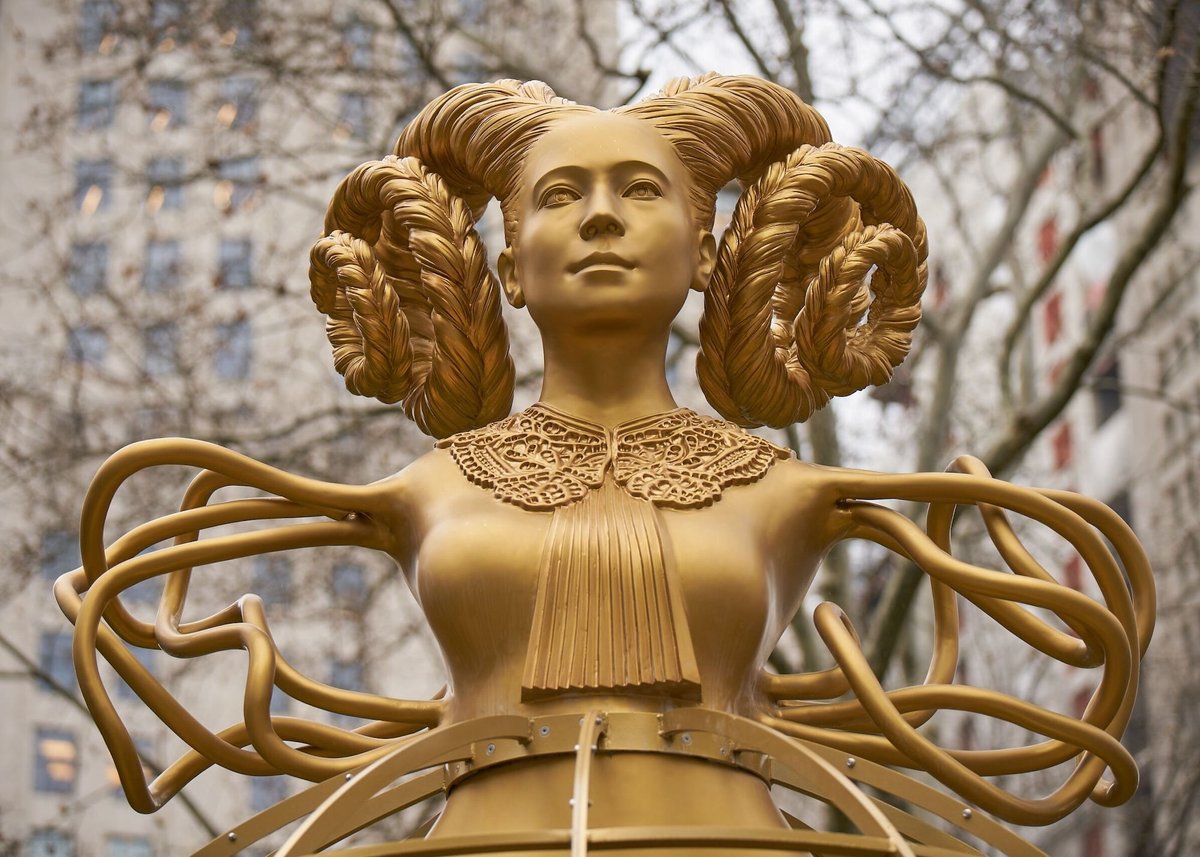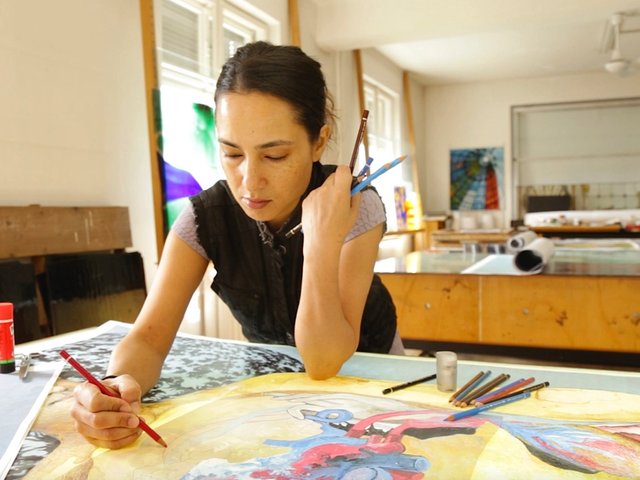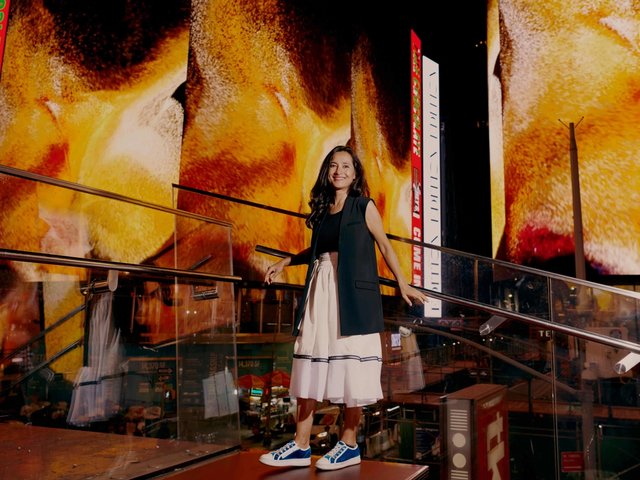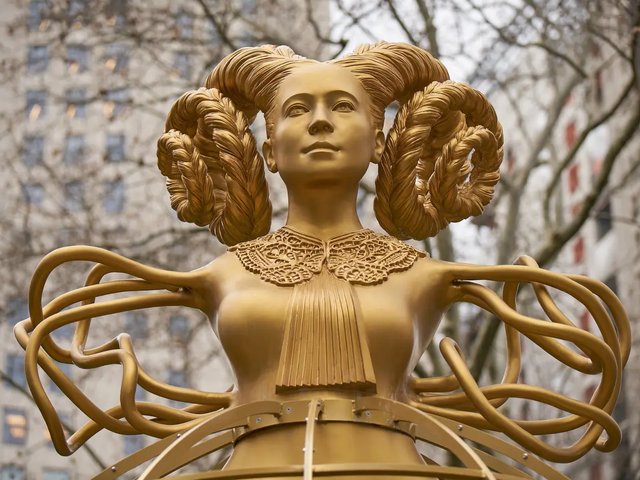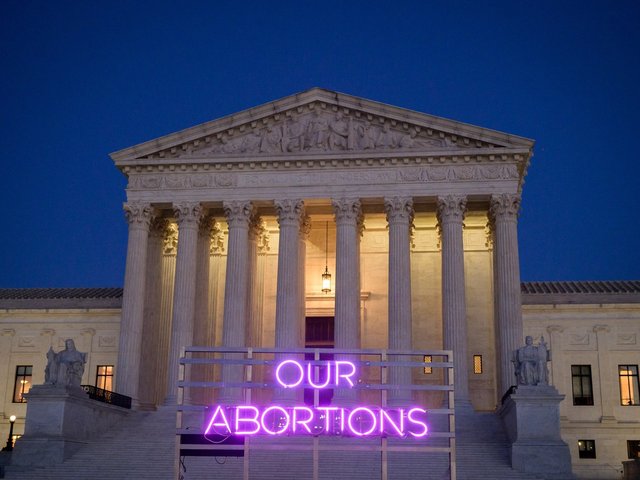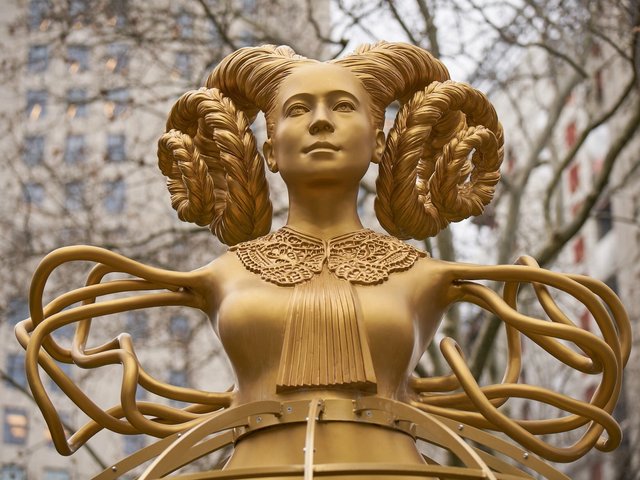Artist Shahzia Sikander, whose bronze sculpture Witness (2023) at the University of Houston (UH) was targeted by anti-abortion activists before being decapitated by a man with a hammer last month, wrote in a Washington Post op-ed published this week that she will not repair the damaged work, instead pledging to “leave the statue the way it is: a testament to the hatred and division that permeate our society”.
Sikander is a Pakistani American artist based in New York. Witness is among her first works to be installed in public, but faced protests by right-wing groups after it was unveiled on the University of Houston (UH) campus in February. The 18ft-tall sculpture shows a woman with ram horns whose limbs grow into roots, held up by a hoop-skirt frame. Anti-abortion group Texas Right to Life called the work “satanic” and threatened to boycott the opening of Sikander’s show Havah…to breathe, air, life (28 February–31 October) on the university's campus. An opening celebration and artist talk were subsequently canceled by UH. A man used a hammer to decapitate the sculpture in the early hours of 8 July, as Hurricane Beryl caused power outages across Texas.
“It’s clear to me that the people opposed to the statue object to its message of women’s power,” Sikander wrote in her op-ed. She also doubled down on earlier statements that she would not repair the work, despite university officials reaching out to her immediately after the attack in hopes of fixing it.
“As the artist who created the work, I have chosen not to repair it,” Sikander wrote. “I want to leave it beheaded, for all to see. The work is now a witness to the fissures in our country.”
For Sikander, the sculpture stands for women’s empowerment. The lace on the figure’s collar is a nod to how US Supreme Court justices like Sandra Day O’Connor and Ruth Bader Ginsburg feminise the black judicial robe. Her limbs are meant to show “self-rootedness, something I have likened to women’s resilience in carrying their roots wherever they go”, Sikander wrote. The ram horns are made from the woman’s braids, which are universal symbols of strength and wisdom, she said. Rams are a recurring motif in the decor of the New York appellate courthouse in Manhattan, which Sikander says she referenced for Witness.
“It is my prerogative—some would argue responsibility—as an artist to ask how art can reimagine society. When we are witnessing a regression of women’s rights around the world, especially in the United States, art can function as a vehicle of defiance. It can also be a path toward rectification.”
Abortion in Texas was outlawed in most circumstances in 2022, after the US Supreme Court ruled to overturn Roe v. Wade and allow states to set their own restrictions on abortion. Because of a trigger law that had been passed by the Texas legislature the previous year, performing an abortion became a felony punishable by up to life in prison. The law allows for exceptions in cases of medical emergencies—though some Texas women have still been unable to access services—but none for terminating pregnancies caused by rape or incest. A study released last month by The Commonwealth Fund, a non-profit healthcare foundation, ranked Texas as the second-to-last state in terms of women’s healthcare, only coming in higher than neighbouring Mississippi.
In the op-ed, Sikander urged UH to educate the public about the work and to “address the ignorance and rage underlying the attack”, adding that the First Amendment protects her “freedom to create art, irrespective of how one chooses to interpret my work”.


